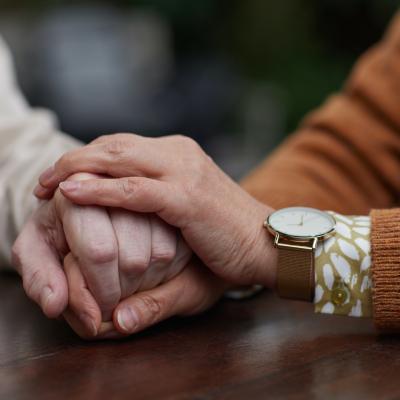Trinity Church Wall Street has a long history of advancing social justice in alignment with our belief that every person is created in the image of God and has dignity and value. We also have a steadfast commitment to caring for our neighbors, no matter where they’ve come from or how long they’ve been here. This document details our current advocacy priorities, which are informed by, build on, and complement efforts across the church including our direct services, programming, grantmaking, mission investing, and convenings. They also reflect the urgency of the moment as our city struggles to address the ongoing housing crisis exacerbated by the influx of asylum seekers and the difficulties youth continue to face as a result of the long-term academic and emotional consequences of the COVID-19 pandemic.
While the challenges facing the city are great, so is the opportunity to foster broad change and ensure the well-being of our most marginalized neighbors, particularly Black and brown young people, and the newest New Yorkers. As such, Trinity uses a multi-pronged approach that combines direct services, programming, grantmaking, and advocacy. To move our policy priorities forward, we leverage Trinity’s resources and standing as a faith-based anchor institution. We also join campaigns, collaborate with those with lived experience, direct service and advocacy allies and policymakers, and engage in targeted government relations and communications efforts.
Goal 1: Enhance youth well-being and education
- Pass the State’s Solutions Not Suspensions Act to improve school culture and climate by using proven restorative justice practices and social-emotional supports and end the over-reliance on suspension as the default disciplinary method.
- Expand school-based social and emotional supports, alternative mental health care, job placement, training and college access and success services, and making afterschool available year-round for schools most in need.
- Enact the State’s New Deal for CUNY bill which would increase the ratio of faculty and mental health counselors to students and make tuition free by using designated federal, State, and City funds.
- Expand efforts to effectively address the food and housing insecurity needs of CUNY students.

Goal 2: Remove barriers to and increase the supply of affordable and supportive housing
- Create the statewide Housing Access Voucher Program to serve people who do not qualify for existing rental assistance programs by passing legislation.
- Pass the Faith Based Affordable Housing Act to allow religious institutions to create permanently affordable housing on their land by easing unduly zoning restrictions.
- Implement the City of Yes for Housing Opportunity plan to facilitate housing growth across the city, encouraging all neighborhoods to add affordable housing.
- Uphold New York’s legal right to shelter to ensure safe shelter for all those who need it.
- Develop new financing mechanisms and innovative strategies to increase the supply of deeply affordable and supportive housing particularly for vulnerable populations such as homeless youth and families, and people with criminal justice system experience.

Goal 3: Address the needs of those suffering from severe mental health challenges
- Improve and fully fund B-HEARD (Behavioral Health Emergency Assistance Response Division), designed to respond to people in severe mental health crisis by including trained peers, reducing response times and the number of calls routed to 911, and expanding to the communities with the highest number of 911 calls.
- Facilitate recovery and avoid the criminal legal system for those with substance abuse disorder, mental illness, and other disabilities by passing the State Treatment Not Jail bill.
- Increase inpatient psychiatric treatment beds and supportive housing for individuals with mental illness.

Goal 4: Reduce the number of people in City jails and State prison and support reentry
- Ensure the closure of the jails on Rikers Island and creation of smaller borough-based facilities as mandated by law.
- Ensure those held in City jails have access to voter education and can vote.
- Increase access to evidence-based alternatives to incarceration and supervised release.
- Expand and improve coordination of reentry services such as job training and placement, housing, and health and mental health care, including by funding in-custody programs provided by trusted community organizations.
- Provide every person released from Rikers Island and other City jails an IDNYC card and essential documents through legislation.
Media Coverage
Click through to read more.New York Daily News
New York Daily News
Testimony to City Council
FY25 Preliminary Budget - Children and Youth
Budget recommendations to ensure the well-being of young people in our community
FY25 Preliminary Budget - Public Safety
Budget recommendations to make NYC safer and more just for all
FY25 Preliminary Budget - Housing & Buildings
Budget recommendations to meet the housing needs of New Yorkers
FY25 Preliminary Budget - Criminal Justice
Budget recommendations to help transform NYC's justice system
Supporting policies to decarcerate city jails
including by establishing a “Local Conditional Release Commission.”
Addressing the crisis in Rikers Island jails
Including both testimony and policy recommendations
On improving conditions for women in city jails
Policy recommendations
Supporting reforms to New York’s Reentry System
and other housing policy solutions
Supporting the Fair Chance for Housing Act
Trinity on behalf of the Faith Communities for Just Reentry coalition
Impact of the Expiration of the Eviction Moratoriums
and recommendations for what New York City’s elected leaders should do to protect vulnerable New Yorkers from the threat of eviction
FY24 Preliminary Budget Priorities - Housing & Buildings
Budget recommendations to meet the housing needs of New Yorkers
Examining the City’s Response & Delivery of Services to Migrants
Recommendations on how to support asylum seekers
FY24 Preliminary Budget Priorities - Public Safety
Budget recommendations to make NYC safer and more just for all
FY23 Preliminary Budget Testimony
urging the Mayor and City Council to prioritize investments in services and support for justice-involved New Yorkers
Implementation of Int. 0146
recommending that the City use the rent burden standard that no CityFHEPS voucher recipient should pay more than 30% of their income for rent
